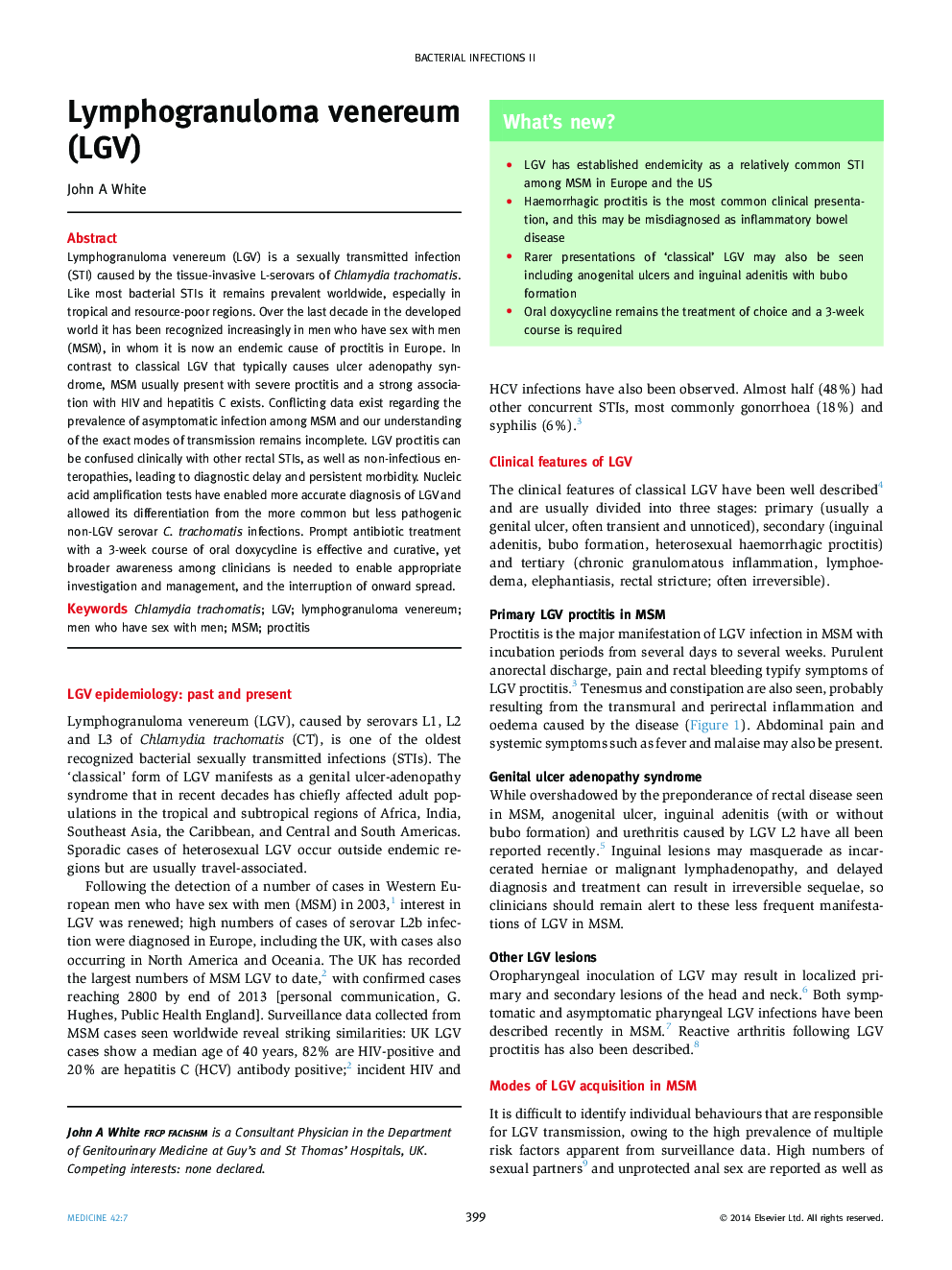| Article ID | Journal | Published Year | Pages | File Type |
|---|---|---|---|---|
| 3806605 | Medicine | 2014 | 4 Pages |
Lymphogranuloma venereum (LGV) is a sexually transmitted infection (STI) caused by the tissue-invasive L-serovars of Chlamydia trachomatis. Like most bacterial STIs it remains prevalent worldwide, especially in tropical and resource-poor regions. Over the last decade in the developed world it has been recognized increasingly in men who have sex with men (MSM), in whom it is now an endemic cause of proctitis in Europe. In contrast to classical LGV that typically causes ulcer adenopathy syndrome, MSM usually present with severe proctitis and a strong association with HIV and hepatitis C exists. Conflicting data exist regarding the prevalence of asymptomatic infection among MSM and our understanding of the exact modes of transmission remains incomplete. LGV proctitis can be confused clinically with other rectal STIs, as well as non-infectious enteropathies, leading to diagnostic delay and persistent morbidity. Nucleic acid amplification tests have enabled more accurate diagnosis of LGV and allowed its differentiation from the more common but less pathogenic non-LGV serovar C. trachomatis infections. Prompt antibiotic treatment with a 3-week course of oral doxycycline is effective and curative, yet broader awareness among clinicians is needed to enable appropriate investigation and management, and the interruption of onward spread.
